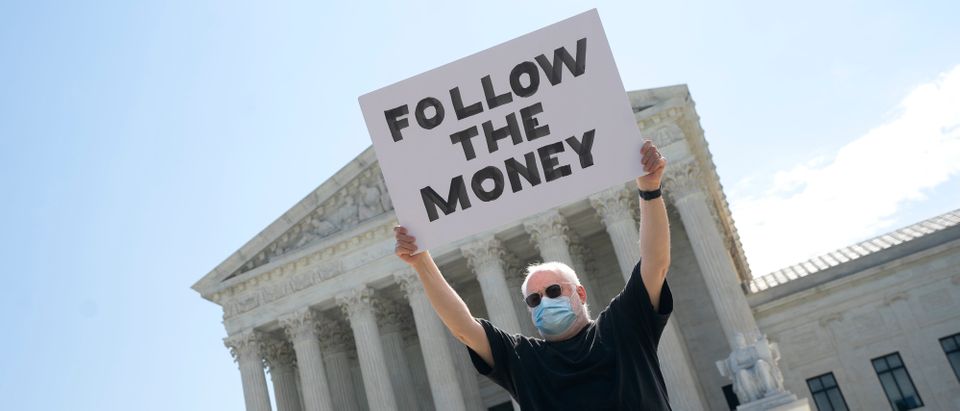South Dakota has received quite a bit of attention recently due to the divorce of Ed and Marie Bosarge, which has highlighted its status as a tax refuge.
Ed Bosarge co-founded Quantlab, one of the most successful high-frequency trading firms in the world. Marie Bosarge’s attorneys “have identified up to $2 billion they claim is held in trust,” reported Mansion Global. Shortly before his divorce, Bosarge placed much of his money in South Dakota trusts, according to CNBC. His attorneys now reportedly claim there is only $12 million in community property.
“He always said only dumb people pay taxes,” Marie Bosarge told CNBC of her ex-husband. The same CNBC story covering the Bosarges’ divorce noted numerous benefits for someone like Ed.
“Trusts in South Dakota are perpetual, meaning a wealthy family can put assets into a trust that are held in perpetuity, rather than for a limited period of time,” the CNBC story noted. “The state also gives trusts sweeping privacy and asset-protections against creditors, business partners, lawsuits or ex-spouses.” (RELATED: Here’s The $1.07 Million New Hampshire House Where Ghislaine Maxwell Was Hiding Out)
Recognize the name Ed Bosarge? The one born in Mobile? There’s a high-stakes battle brewing between Mr. & Mrs. ⤵️ https://t.co/5Nzq9gXpYT
— Bob Grip (@Bob_Grip) April 11, 2020
In an interview with the Daily Caller, Democratic South Dakota Senatorial candidate Dan Ahlers said one advantage provided by South Dakota for someone like Bosarge is the low cost.
“We don’t tax anything other than a small insurance fee that’s on there; they don’t pay anything else. It’s the least expensive way to protect your assets,” Ahlers said.
And Ed Bosarge is not the only person taking advantage of South Dakota trust laws.
“South Dakota is fast becoming a mini-Switzerland for the world’s rich,” the CNBC piece noted. “Analysts and local politicians estimate that $250 billion to $900 billion is now stashed in South Dakota trusts by the likes of Chinese billionaires looking to keep their fortunes out of reach of the government, Europeans looking to avoid taxes and Americans looking to shield wealth from spouses.”
When investigative journalist Wayne Dolcefino examined the Bosarge divorce, he found that South Dakota trusts controlled $3.2 trillion.
“Think about it, money hidden from taxes, money linked to foreign investments,” Dolcefino said. “Who knows what that money is going to be used for?”
Ahlers said he also hasn’t seen much benefit for South Dakota. He told the Caller that the last report he saw indicated the trust companies have created no more than 450 jobs. He added that while this remains largely a state issue, there may also be reason for federal intervention.
“It could be something that we need to look at, because this is an issue that is now crossing state lines. It’s not just one state,” he said. “It’s, ‘Can South Dakota law supersede Texas law?’ So there could end up being a national question.”
He said a federal law may need to establish that no trust company or law in any state “can supersede and prevent any financial obligations in another state.”
Ahlers said that South Dakota began reforming its trust laws in 1996, but argues that what started out as an effort to protect the assets of a few South Dakota families turned into an industry.
“I can remember in the testimony that they were talking about maybe 20 small families,” Ahlers said, “and the focus was on really making it easy for those families to … protect their land, protect their family assets, and … have this perpetual trust which will transcend from one generation to the next.”
“It was never our intent when we were changing the laws — at least not when I was there — the intent wasn’t to create an entire industry but to serve the people of South Dakota,” Ahlers continued. “Like I said, I don’t know where the grand plan began, but I know that systematically throughout the years, these changes and updates to the laws have certainly made it easier — and maybe that was the plan all along.”
Ahlers said publicity from this story is bound to send a message about South Dakota that he finds concerning.
“This case in particular has gotten national recognition, and that’s where you start to worry about being known that way, because now you’ve got people going, ‘Hey, you know this court decision is going to be a big deal.’ What happens with this and how South Dakota responds is going to send a message across the country,” Ahlers said.
“My big concern is that this case is such a high-profile case that it’s going to do a lot of advertising for South Dakota.”
An email to Ed Bosarge at his website was left unreturned.
Find the full interview with Dan Ahlers below.


